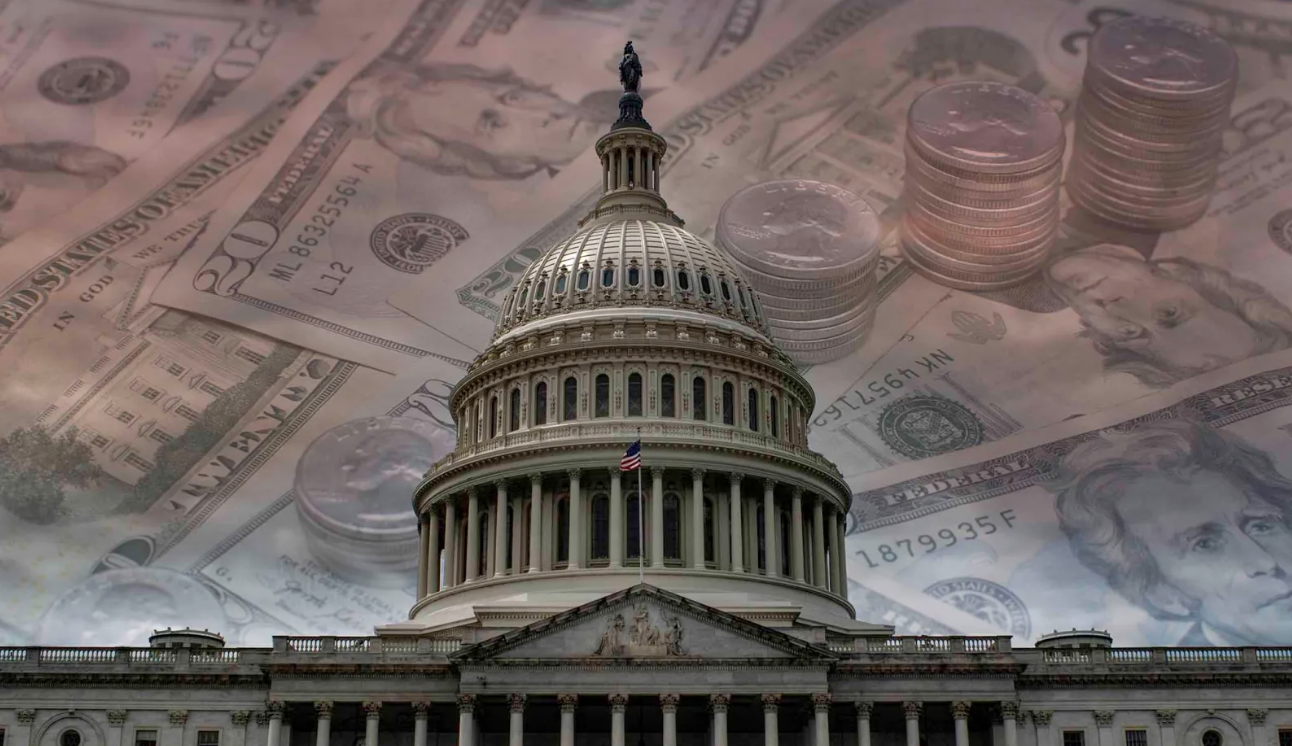Politicians need to recognize the urgency of cutting benefits or raising revenue.
During the Obama administration, many economists and political commentators became worried that the U.S. faced endless budget deficits that could cause higher interest rates, depress investment, and slow economic growth. Some elected officials pressed for a so-called grand bargain in 2011 between the parties that would both reduce spending and increase revenue, and a bipartisan commission was appointed to address the issue.
It seemed that our concerns had been discredited. Perhaps the U.S. could continue down this road indefinitely. We could cut taxes, as President Trump did, and increase spending, as both he and President Biden did, without paying a price. As former Vice President Dick Cheney reportedly told former Treasury Secretary Paul O’Neill in 2002, “Reagan proved deficits don’t matter.”
Or do they?
A study by the Committee for a Responsible Federal Budget found that during his term, Mr. Trump approved policies requiring $8.4 trillion of new 10-year borrowing, while Mr. Biden has so far approved a $4.3 trillion increase. The Congressional Budget Office this month laid out the consequences in an economic-outlook report. The U.S. over the next decade will rack up a budget deficit totaling more than $22 trillion, raising the federal debt from 99% of gross domestic product in 2024 to 122% in 2034. Annual interest will nearly double, from $892 billion this year to more than $1.7 trillion a decade from now—more than projected spending on defense.
It gets worse. The CBO is required to base its projections on current law, under which the tax cuts enacted in 2017 will expire at the end of 2025. Neither Mr. Biden nor Mr. Trump plans to end all the cuts, but both their proposals remain vague. The CBO and Joint Committee on Taxation estimate that extending the Trump-era tax cuts for another decade would increase the federal debt by an additional $4.6 trillion above the $22 trillion baseline.
We’re backing ourselves into a fiscal corner. Annual outlays for Social Security will rise by about $1 trillion over the next decade, as will outlays for Medicare. But Mr. Trump has ruled out cuts to these programs, bringing his party into alignment with the Democrats’ longtime stance. Nor will Republicans accept tax increases. Meantime, projected defense spending falls far short of what will be necessary to protect the U.S. in an increasingly dangerous world. And there won’t be any room for additional domestic spending on young families with children. Taking the path of least resistance—increasing spending without increasing revenue—will make a bad fiscal situation worse.
Add to this that the U.S. is a rapidly aging society. Americans 65 and older made up 9% of the population in 1960. Today, this figure is 18%, and it’s projected to rise to 23% over the next three decades. As older Americans’ share of the electorate increases, so will the cost of guaranteeing them basic income and medical security. I doubt many elderly voters will rally around a fiscal strategy that reduces their benefits.
Continuing on our current fiscal course will mean a gradual loss of America’s financial independence followed by an abrupt economic decline. The U.S. will have to ask the rest of the world to finance its debt, and it’s reckless to assume that other nations will do so indefinitely. The risk is that countries the U.S. relies on will draw back gradually—and then suddenly, when some unforeseen shock crystallizes their mounting doubts. As the late economist Herb Stein quipped, “If something cannot go on forever, it will stop.”
We have to recognize the consequences of these realities and start taking steps to secure America’s fiscal future. Leaders with vision should address these issues realistically and make the case to the public that they must either pay for the programs they want or agree to cut them. Faced with this choice, I suspect that voters would support the higher taxes that are needed to stabilize Social Security and Medicare for decades to come, help families with young children, and defend the country against mounting threats.
The alternative is to adopt the attitude of the feckless Wilkins Micawber from Charles Dickens’s novel “David Copperfield,” who clung to the overly optimistic belief that “something will turn up.” It’s always easier to put off the day of reckoning—but it will come, whether we’re ready for it or not. We should prepare for future storms while there’s still time.
To see this article in its entirety and to subscribe to others like it, please choose to read more.
 Listen Online
Listen Online Watch Online
Watch Online Find a Station in Your Area
Find a Station in Your Area










 Listen Now
Listen Now Watch Online
Watch Online
